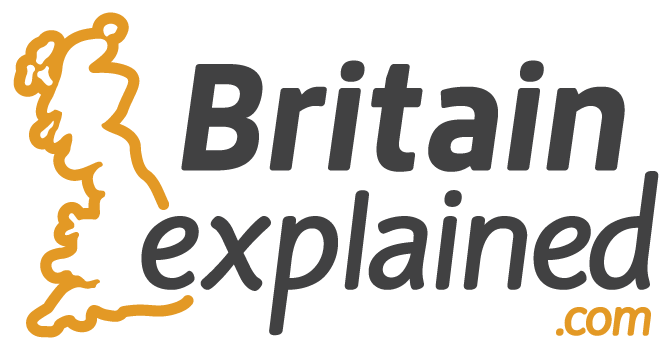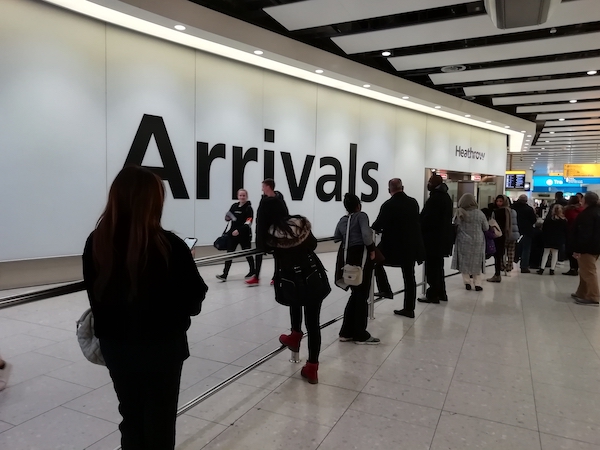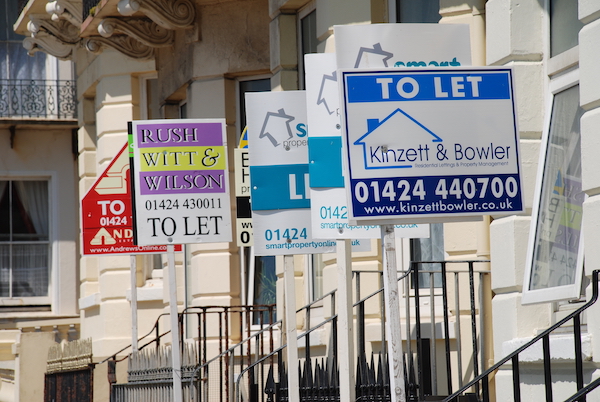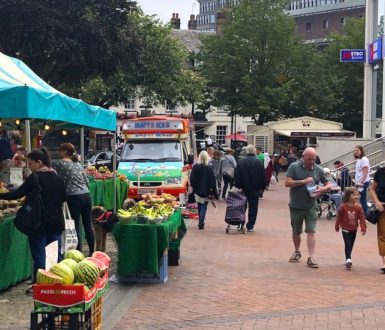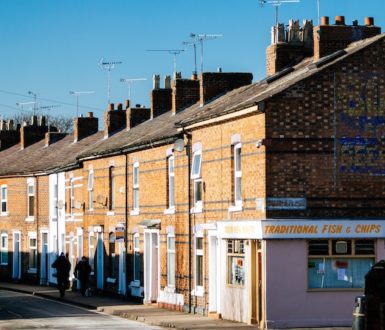An overview of all the things you need to remember when you are planning to live in the UK, including what to bring with you and explanations of visas and official language.
Go to the topics page to find out more about life in Britain, including accessing healthcare, the education system and how to find somewhere to live.
If you are a refugee, the website archiveofbelong.org has a list of useful resources for refugees in Britain.
Visas
This is an overview of what you need to know when moving to the UK. It is not legal advice and you should check the current rules on an official website. Consult a specialist immigration lawyer if you need help. Find solicitors on the Law Society website.
The number and type of documents you need depends on your visa. Any official documents in a foreign language will need an official English translation.
Bring these with you as a minimum:
- Your passport
- Marriage/divorce/civil partnership certificate (if you have one)
- Driving licence (if you have one)
- Birth certificate
- Bank statements, financial statements, pension statements or property ownership documents to show what assets you have
- Medical and dental history, including vaccinations and tests needed for your visa.
There is no identity register in the UK. To prove your identity (ID) you will need some form of official photo identification (like a passport, driving licence or biometric residence permit). You will also need something to prove your address. This could be a bank statement, council tax bill, energy bill, water bill or broadband bill.
It can also be useful to have a home phone number (landline phone number), rather than just a mobile phone number, because it shows you are living somewhere permanent.
You need to think carefully about how much money to have with you. If your visa does not allow you to work, you must be able to support yourself. Many jobs only pay you after you have worked for a month and it can take time to set up a bank account.
- You need to pay for somewhere to stay (this might include a deposit, usually 1 months’ rent).
- You might need to buy items to set up your home.
- You might need to pay the Immigration Health Surcharge towards health costs.
- You might need to buy or hire a car, or you will need money for travel on public transport.
- And of course you will need to pay for food and bills.
Even if you are in the UK to work, you might need £5,000-£10,000 to start. However, don’t bring lots of cash. Many places in Britain now only take contactless or card payments, so you will need a credit card, debit card or phone app to make payments.
It is possible for many overseas qualifications or skills to be recognised in the UK, for example:
- exams and diplomas
- university degrees
- professional qualifications
- construction skills
- experience with children 0-5
There is one official national agency responsible for providing information and advice: The UK NARIC (National Recognition Information Centre). They can also help with an assessment of your English language skills.
You need to pay for the service, but multiple qualifications can be included for the same price.
- For most types of qualification, see the main UK NARIC website.
- If you have professional qualifications, see the Professional section on the UK NARIC website.
If you are visiting the UK for less than 6 months, make sure you have private medical insurance in case you need hospital treatment or have to be flown home. This also applies to British citizens who live abroad.
You will be charged for all National Health Service care when you use it, except for free services, which are:
- ambulances
- GP services (local doctors)
- treatment for serious infectious diseases, such as tuberculosis and measles
- treatment of sexually transmitted diseases
- contraception
- treatment for mental or physical injuries caused by torture, domestic violence, sexual violence or female genital mutilation.
- the NHS 111 telephone service (in Wales it is 0845 46 47)
- end of life (palliative) care
If you are asked to pay for emergency hospital care and you do not, it is possible it will affect your chance of getting a visa if you wish to visit Britain another time. The National Health Service website has more details.
Read more about healthcare in Britain in the HEALTHCARE section.
If you are applying for a UK visa lasting over 6 months, you will probably have to pay a contribution towards medical care from the National Health Service you might need when you are here. This is called the IHS (Immigration Health Surcharge).
The cost rose to £625 in October 2020. There is a cheaper rate for students. You must pay the full amount for the length of your visa, in one payment. Read more on the main government website.
You need to pay the IHS even if you have private medical insurance. Be aware the IHS will not pay to fly you home or give you private medical care. It also does not cover prescription charges for medicine, dental treatment, eye tests or help getting pregnant.
Some people do not need to pay the IHS. This includes people working in the health or care sector (including hospitals and care homes). It also people applying to live in the UK permanently, diplomats, victims of slavery or human trafficking, and asylum seekers (see the main government website for the full list).
- There is more information about medical charges when you move to the UK on the main government website.
Be aware that if you are living in England or Wales, after 1 year you will be automatically considered as an organ donor if you were to die. If you don’t want this to happen, you need to register as a non-donor on the NHS Organ Donation website.
Read more about healthcare in Britain in the HEALTHCARE section.
It is possible to bring your pet to Britain, however it might make it difficult to find a place to stay – many rental homes do not allow pets. The rules about what you need to do depend on the animal and where you are travelling from. It can take several months to complete the process.
As a general guide:
- Dogs, cats and ferrets need a microchip, rabies vaccination, tapeworm treatment (dogs) and a special EU ‘pet passport’ or Great Britain Health Certificate. There is a similar scheme for horses.
- It is more complicated with other types of animal. Email APHA (Animal and Plant Health Agency) at pettravel@apha.gov.uk for help.
- Some dog breeds are banned: the Pit Bull Terrier, the Japanese Tosa, the Dogo Argentino and the Fila Brasileiro.
- If you want to travel by plane, pets must usually travel as cargo. Be aware that if you arrive in the UK on a Sunday, you might not be able to collect your pet until Monday (some depots are shut on Sunday). Speak to your airline for advice.
- If your pet comes to Britain more than 5 days before or after your arrival, there are special rules.
- Some pets have to go into 4-month rabies quarantine if you have travelled from outside the European Union and have not followed the pet travel rules.
- Cats from Australia and dogs/cats from Penisular Malaysia need extra documents.
The main government website has more information about bringing pets to Britain.
To help prevent the spread of diseases, there are restrictions on some animal, plant and food products that can be brought into Britain.
From European Union countries, Northern Ireland, Switzerland, Liechtenstein, San Marino, Andorra and the Canary Islands, you can bring meat, dairy, fruit and vegetables to eat (as long as they are not showing any sign of disease). The rules are a bit different for Iceland, Greenland and the Faroe Islands.
The rules are much stricter for other countries (including Gibraltar and Cyprus). Most meat or dairy products are banned. This includes cream cakes, halva, filled pasta, stock cubes and pate. Baby milk is allowed.
You are also not allowed to bring fruit, vegetables or plants without a valid certificate of plant health. This includes wooden ornaments and furniture, Christmas wreaths and cut flowers.
- Read more about what you can import on the main government website.
Tips when starting your life in Britain
Getting a UK bank account is likely to be essential. This is because:
- UK employers will usually need a UK bank account in order to pay wages.
- Many places in Britain now only take contactless or card payments, so you will need a credit card, debit card or phone app to make payments. Having a UK bank account would avoid transfer fees.
- In addition, a lot of services in Britain use subscriptions or phone apps that need a UK bank account.
You will need a basic account known as a current account. Compare different accounts to see what they can offer, for example reduced (or zero) transfer fees when moving money to/from foreign bank accounts, Sharia-approved banking, discounts or even cash back on purchases.
In addition, it is a good idea to choose a bank or building society that has a branch near you because it will be easier to get help.
Opening a bank as a foreign citizen is not very different to opening it as a British citizen, but finalising the process might take time. Make sure you have a different way to get money until the bank account is fully set up.
Everyday bank accounts are called Current Accounts. You can get Current Accounts in banks and building societies (similar to a bank, but owned by its members).
Most banks and building societies offer phone apps that can make it easier to make payments and check how much money you have.
There are two main things you will need:
- Something to prove your identity (your passport, for example)
- Something official that proves you live in the UK (it must show your name and UK address). Depending on each bank’s exact rules, this could be:
– A letter from your bank in your home country sent to your UK address
– A gas, electricity, home phone or water bill
– A UK council tax bill
– A UK driving licence
You can often start opening an account online on your bank’s website. However, you might also need to make an appointment at the bank to prove your identity. This could take several weeks.
Getting a mobile phone contract can be difficult if you have only just arrived in the UK. This is because you will need proof of residence.
The mobile phone company will also want to make sure you can pay for their services (your credit rating) – and this can be difficult to prove. You will also need personal identification.
You are more likely to get a contract if you ask for a SIM-only deal. This is because you don’t pay for an expensive phone handset, just the calls and internet data.
If you can’t get a contract, use pay-as-you-go for your mobile phone (see next question).
It is always possible to keep your phone number, even if you change the mobile phone company you use.
MORE INFORMATION: There are many different mobile phone companies. It can be useful to choose a company with a shop near you. If you have any problems, it makes it easier to get help, especially if you don’t speak English well. Some companies will take a UK credit or debit card as proof of residence.
Pay-as-you-go is the name for pre-pay mobile phone services. It is easy to buy SIM cards from shops or supermarkets that will connect you to the UK mobile phone network. They cost as little as £1 and you don’t need personal identification.
You can also buy phone handsets with pay-as-you-go SIM cards.
Be aware it is always possible to keep your phone number, even if you change the mobile phone company you use.
Britain has many different supermarkets. You can usually also buy online and get the shopping delivered to your home. When you go to the supermarket, you often need a £1 coin to use a trolley. You will get the £1 back afterwards.
These are the most common supermarkets:
Most popular:
Luxury:
Discount:
Local small shops:
- Co-operative (no home delivery)
This is a short list of national stores that sell basic items for the whole family. They all offer online shopping with home delivery and some have next-day delivery. Some are more expensive than others.
If you don’t mind second-hand clothing, there are many charity shops that sell donated clothes. This often includes famous fashion brands. You can also buy second-hand clothes online from these websites:
- Re-fashion second-hand clothes
- Oxfam second-hand clothes
The main government website is www.gov.uk. It has everything you need. It is very clear and easy to use.
If you have an emergency, call 999 to speak to the police, fire and rescue service, or ambulance service (and other emergency services, for example the coastguard). Calls are free.
Many specialist emergency services are charities and rely on money from donations. This includes emergency helicopters, Mountain Rescue, Cave Rescue and the RNLI (the lifeboat service). Often they are staffed by volunteers.
It does not cost anything to have emergency help, but it is against the law to call for help if you do not need it.
Since Covid, it has become easier to rent property in Britain if you are living abroad. Many property agents now offer video viewing and often you can sign the documents electronically. While this is useful, it can make you more vulnerable to a scam: make sure to use a reputable lettings agent, rather than going direct to a landlord. This minimises the risk of someone trying to rent you a home they don’t actually own.
While this all sounds very useful, ideally you should also view the property in person (or get a friend to view it for you). Video tours are good, but it is easy to avoid showing you the worst aspects of the property or its surroundings.
You can make the rental process quicker if you can prove your ‘right to rent’ (for example you have your previous landlord contact details, rent statements, immigration documents and personal identification documents).
Holiday rental properties (vacation rentals) are a good place to stay at first. It is often possible to stay 1-2 months and it can be simpler and cheaper than a hotel or hostel.
The rules in Britain for landlords are quite strict, so they are careful about whom they rent their property to. If you have just arrived in the country, it can be difficult to prove you will be a good tenant.
There are ways to make yourself more attractive.
You can offer to pay the deposit and 3-6 months’ rent immediately. You might have to prove you have savings too. Make sure you (and anyone over 18 who will be living with you) can prove you are in the country legally.
Some rental agents are experienced in finding property for people arriving from abroad, so it is worth speaking to several agents to find the best one.
Other tips:
- It can be easier to rent a place if you know someone in the UK who can be a guarantor.
- If you are bringing a partner or family members with you, they do not have to be named on the tenancy agreement. This can make the process simpler.
- Give the landlord/agent details of your qualifications and what kind of work you will be doing, because it is an important way for the landlord/agent to assess your application.
Read more about finding property on the RENTING & BUYING page.
It can be easier to find property if you register with estate agents before you arrive in the UK. You can usually do this online.
Ask the estate agent to show you lots of properties on one day. This saves time and can make a decision easier. In some places (especially London), there is a shortage of property to rent, so you may need to decide quickly.
Make sure you sign up to ‘property alerts’ with at least these websites:
